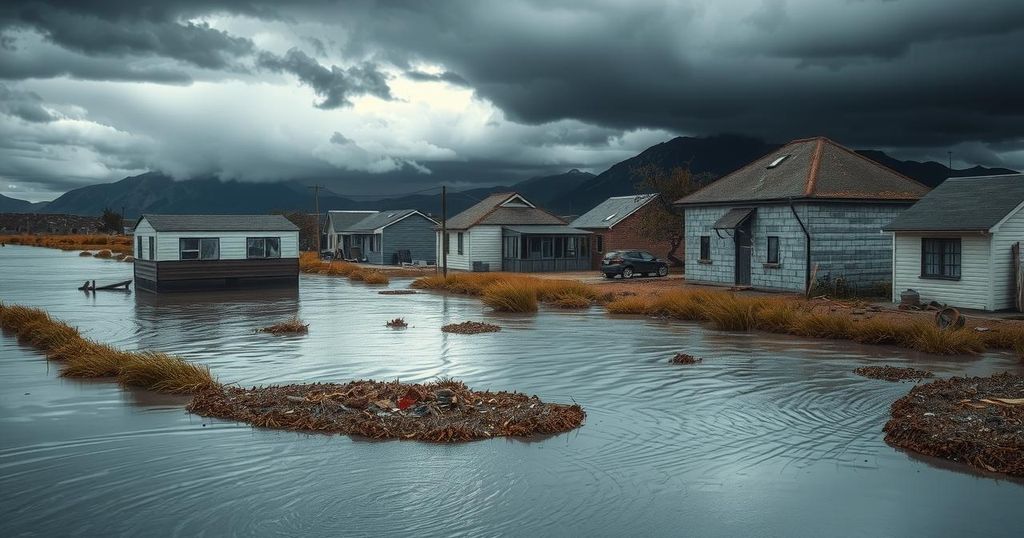Severe Flooding in Eastern Cape Leaves 49 Dead, Recovery Efforts Underway
Severe flooding in South Africa’s Eastern Cape province has resulted in at least 49 deaths, with more casualties anticipated. The floods struck after a strong weather front brought heavy rains and snow. Six high school students were among the deceased, with several still missing. Rescue operations are ongoing amid significant infrastructural damage and power outages affecting hundreds of thousands of homes.
At least 49 people have lost their lives in severe floods that struck South Africa’s Eastern Cape province, officials confirmed on Wednesday. The devastation is believed to worsen as the search for the missing continues, with additional bodies expected to be discovered. The floods hit the largely impoverished region after a powerful weather system brought heavy rains, harsh winds, and snowfall to certain areas on Tuesday.
Eastern Cape Premier Oscar Mabuyane emphasized the tragedy during a press briefing, stating, “As we speak here, other bodies are being discovered,” calling it one of the worst weather-related disasters in the province’s history. His sentiments echoed the shock many locals feel, as he added, “I have never seen something like this.”
Among the confirmed dead are six high school students, tragically swept away when their school bus became trapped in raging floodwaters near Mthatha. The area has been severely impacted, with four more students still unaccounted for. The bus was found abandoned earlier on Wednesday, although three students managed to survive by clinging to trees, according to provincial government sources.
Search efforts are set to continue on Thursday, now in their third day, but authorities remain cautious about revealing how many people might still be missing. They are currently collaborating with families to determine exactly who is unaccounted for. Disaster response teams have been mobilized throughout Eastern Cape and neighboring KwaZulu-Natal, as reports of mudslides have begun pouring in following the rainfall and snow.
President Cyril Ramaphosa has stated that the National Disaster Management Center is coordinating with local authorities in Eastern Cape. He shared his sympathies with affected families, calling the situation “devastation.” Power outages have left hundreds of thousands without electricity in both Eastern Cape and KwaZulu-Natal, complicating recovery efforts.
Residents are facing severe challenges. Many families are displaced and living in temporary shelters after their homes were swept away or destroyed in the floods. In addition to human casualties, at least 58 schools and 20 hospitals have sustained damage in the worst-hit areas, particularly around Mthatha. A chaotic scene of submerged houses, stranded vehicles, and debris marks the landscape as the rain recedes and water levels drop.
South Africa often grapples with powerful weather fronts from the Indian and Southern Oceans, which can lead to catastrophic flooding. This recent event echoes similar incidents; for instance, in 2022, over 400 individuals died in flooding around Durban resulting from prolonged heavy rainfall. Yet, it is the impoverished communities with inadequate housing that tend to suffer the most significant losses during such disasters.
In summary, the floods in Eastern Cape have inflicted significant casualties and widespread destruction, with officials expecting the death toll to rise as searches continue. Premier Oscar Mabuyane has underscored the enormity of this disaster, which has affected not only life but has also left families homeless and critical infrastructure damaged. With continuing rain and mudslides, the situation remains dire and the recovery will undoubtedly be a complex and lengthy process.
Original Source: baynews9.com




Post Comment